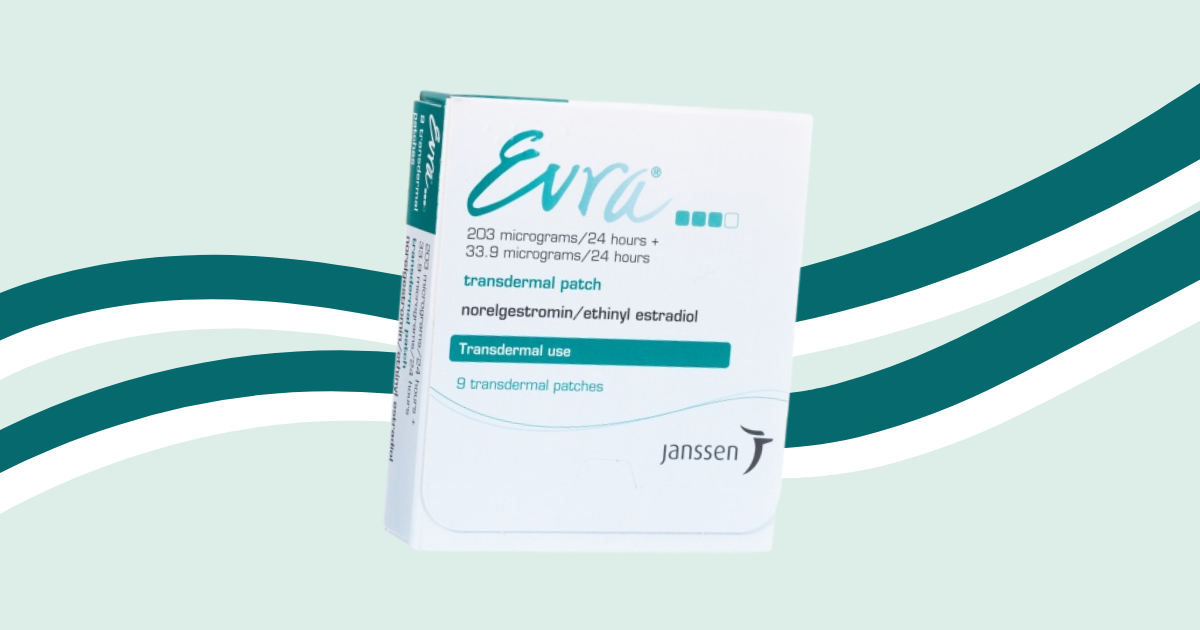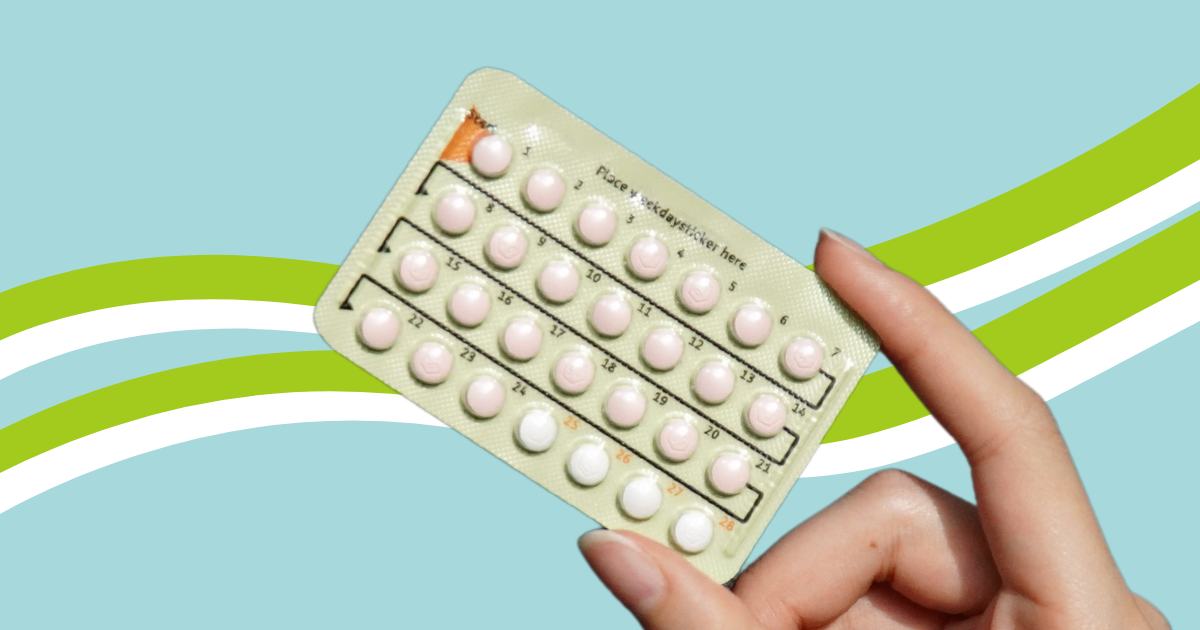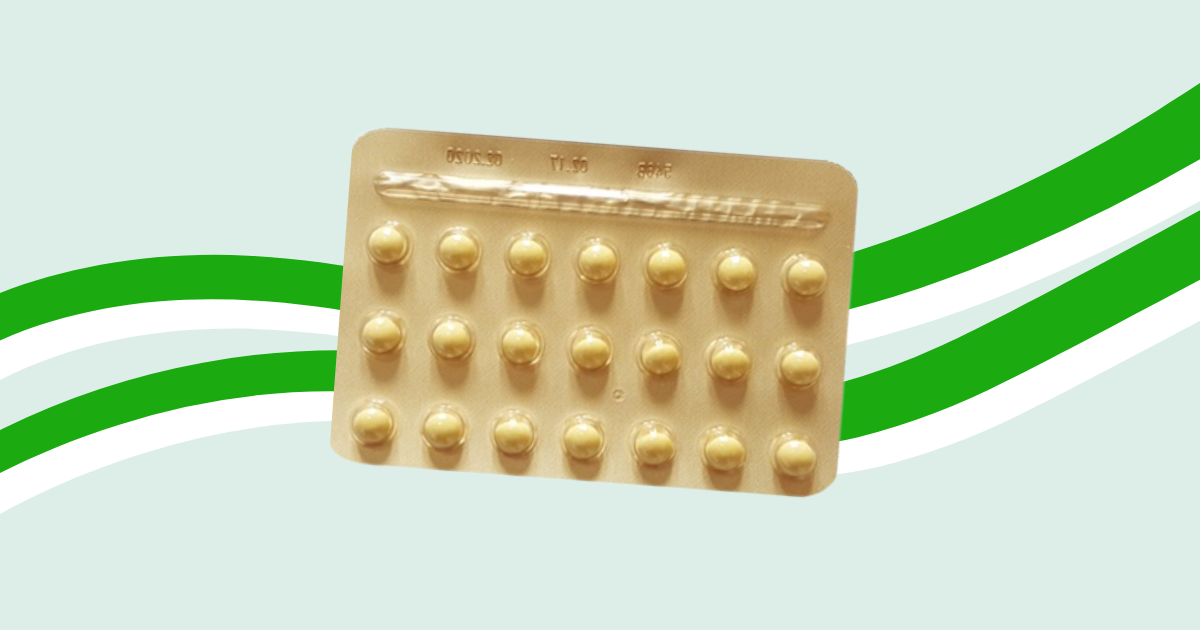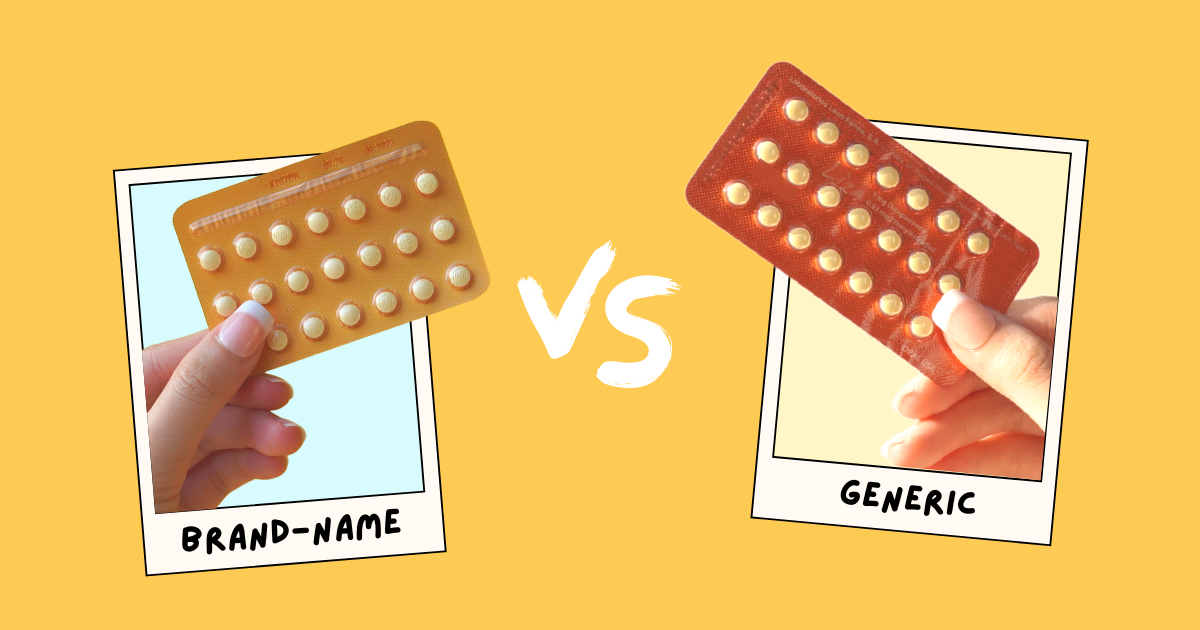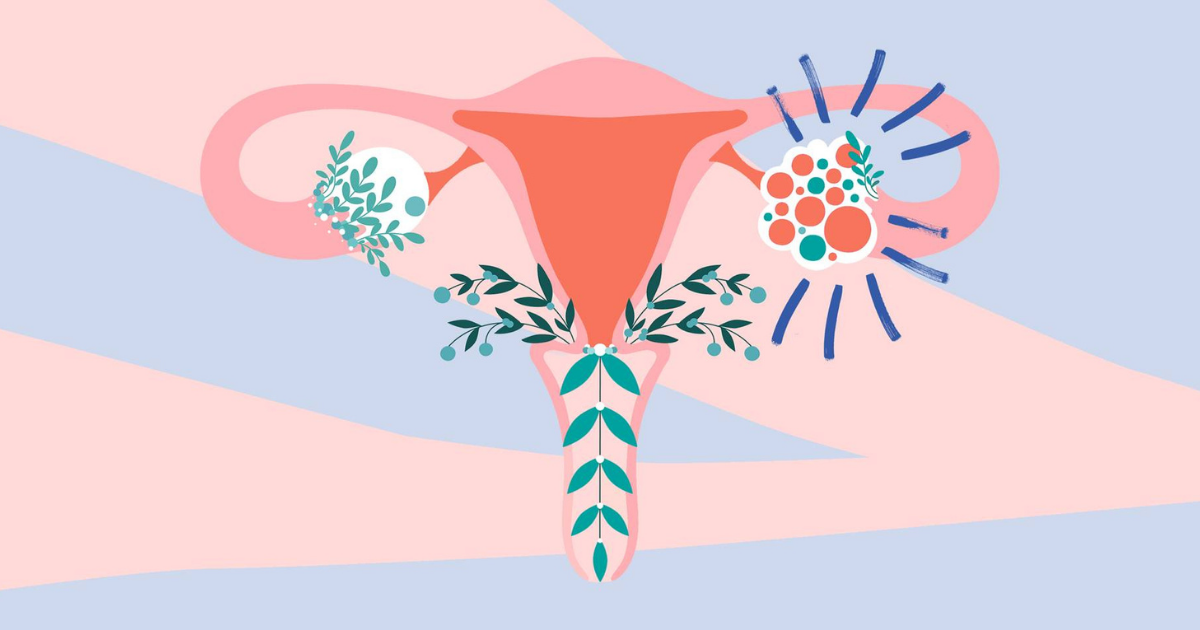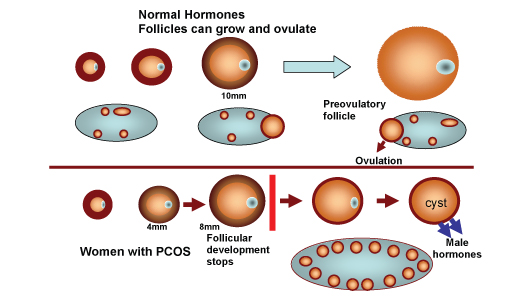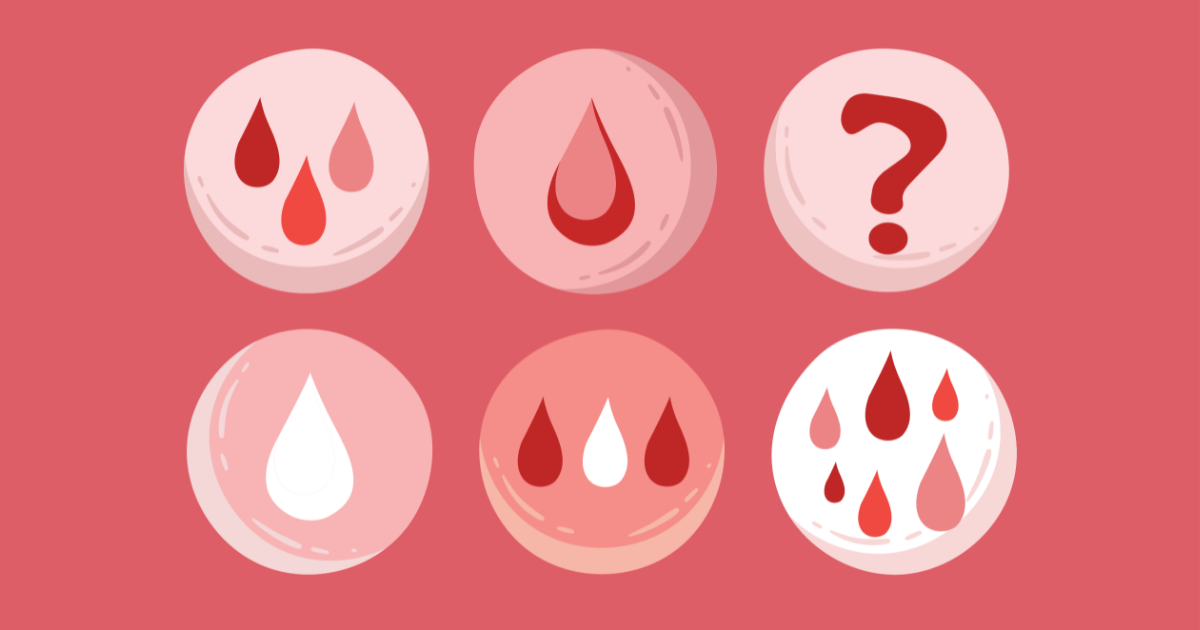Birth control pills are a safe, simple & convenient way to prevent unwanted pregnancy while you remain sexually active. It also has other benefits like reducing acne, making your periods lighter and more regular, and easing menstrual cramps.
Today, birth control pills are prescribed under many different brand names. Wondering which birth control pill is best for you? Keep reading our comprehensive guide to learn about the different contraceptive pill options and their advantages and disadvantages.
How Do Birth Control Pills Work?
Birth control pills contain a small amount of hormones similar to the ones your body uses as part of the menstrual cycle.
The hormones work to prevent pregnancy in 3 main ways:
- Inhibiting ovulation, which is the release of an egg from the ovary;
- Thickening the cervical mucus (the fluid in the vaginal tract), hindering the sperm from reaching the egg to fertilise it and
- Thinning the endometrium (uterine) lining, preventing the attachment of a fertilized egg.
What Are Birth Control Pills Made Of?
Birth control pills contain a small amount of synthetic hormones (estrogen and progestin, or only progestin) that were designed to be better absorbed, more potent and longer lasting than their natural counterparts.
Ethinylestradiol
This is the most common form of synthetic estrogen found in combination birth control pills. Most combination birth control pills contain 10 to 35 mcg of ethinylestradiol. Women who are sensitive to the side effects may benefit from taking a pill with lower estrogen content. However, low-dose pills may result in more breakthrough bleeding — spotting or bleeding between periods — than higher-dose pills.
Progestins
There are a few types of progestins commonly found in birth control pills. Classification of progestins is based on their time of invention.
| Second-generation | Levonorgestrel |
| Third-generation | Desogestrel |
| Fourth-generation | Drospirenone, Cryproterone acetate |
Each generation of progestin confers a different set of pros and cons. As such, different brands of birth control pills are suited to unique individual preferences. Generally speaking, brands containing earlier-generation progestins may increase the risk of side effects such as acne and water retention but are usually more affordable options compared to brands with later-generation progestins.
Types Of Birth Control Pills In Singapore
Combination Birth Control Pills
As the name suggests, combination birth control pills contain both ethinylestradiol and progestin. Combination birth control pills come in different mixtures of active and inactive pills:
Monophasic Pills. Each active pill contains the same amount of hormones in it. The 2 common regimens are
- 21/7. Each pack contains 21 active pills only. One active pill is taken daily for 21 days consecutively, followed by a no-pill period of 7 days. Some common brands include: Mercilon, Microgynon 30, Yasmin, Liza, Diane-35 and Estelle-35.
- 24/4. Each pack contains 24 active pills and 4 inactive pills. One active pill is taken daily for 24 days consecutively, followed by 4 days of inactive pills. Some common brands include: Yaz and Drospera.
While the general consensus is that both regimens are highly effective in preventing pregnancy, there are studies showing that the 24/4 regimen is more effective and provides a shorter withdrawal bleed duration than the 21/7 regimen.
Multiphasic Pills. The amount of hormones in each active pill varies, and pills have to be taken in a specified order otherwise contraceptive efficacy will be affected. It is not commonly found in Singapore and is generally not preferred due to its complicated dosage regimen.
Benefits Of Combination Birth Control Pills
On top of contraception, combination birth control pills may provide additional benefits such as
- Relief from premenstrual syndrome (PMS)
- Less severe menstrual cramps (dysmenorrhea)
- Improvement in acne
- Shorter, lighter and more predictable periods, or fewer or no periods
- Reduction in heavy bleeding (menorrhagia) and related anaemia
The type and extent of benefits differ among the brands available. Have a discussion with your doctors about what kinds of benefits you are looking for specifically to personalise your treatment plan.
Progestin-Only Birth Control Pills (Mini-Pills)
Also known as mini-pills, progestin-only pills contain only progestin and no estrogen. FDA-approved since the 1970s, progestin-only pills have been wildly popular in the overseas market. The first of its kind, Slinda®, has recently got approved by Health Sciences Authority (HSA) for usage in Singapore. Such exciting news indeed!
Benefits Of Progestin-Only Birth Control Pills (Mini-Pills)
Progestin-only pills are highly beneficial for women unable to tolerate or take estrogen for example:
- Age ≥ 35 years old,
- Smokers,
- Have a history of migraine with aura,
- Have a history of stroke, heart issues, high blood pressure and blood clot issues,
- Just given birth or are breastfeeding.
Unlike combination birth control pills, progestin-only pills are safe for breastfeeding women as estrogenic components reduce milk production and have been linked to early cessation of breastfeeding. In fact, the World Health Organisation guidelines state that combination birth control pills should not be taken for at least 6 months after giving birth.
Beyond the benefits of contraception, progestin-only pills are also helpful for women who have heavy or painful periods. Some women may have less bleeding or stop having periods altogether while taking these pills.
Branded vs Generic Birth Control
Branded birth control is basically the pioneer and innovator of the product. Generic birth control refers to “copies of brand name drugs that have exactly the same:
- dose,
- intended use,
- side effects,
- route of administration,
- risks,
- safety, and
- strength
as the original drug, but usually at a fraction of branded drug’s price.
Find out more about the differences between branded and generic birth control.
Common Birth Control Pill Brands in Singapore
The table below compares some of the most common types of birth control pills in Singapore:
| Medication Name (Branded) | Type | Generics | Active ingredients |
| Yaz | Combination | Drospera, Jastinda | Ethinylestradiol 20mcg Drospirenone 3mg |
| Yasmin | Combination | Liza, Gveza | Ethinylestradiol 30mcg Drospirenone 3mg |
| Diane 35 | Combination | Estelle 35 | Ethinylestradiol 35mcg Cyproterone acetate 2mg |
| Mercilon | Combination | – | Ethinylestradiol 20mcg Desogrestrel 0.15mg |
| Microgynon 30 | Combination | – | Ethinylestradiol 30mcg Levonorgestrel 0.15mg |
| Slinda | Progestin-Only | – | Drospirenone 4mg |
How Effective Are Birth Control Pills?
Birth control pills are more than 99% effective in preventing pregnancy when used perfectly. However, missed pills and improper storage may occur day-to-day. Hence, in typical use, birth control pills are around 91% effective.
Generally, birth control pills are more effective than male condoms in preventing pregnancy — male condoms are shown to be 98% effective when used perfectly, and 82% effective with typical use. However, unlike male condoms, sexually transmitted infections (STIs) cannot be prevented by using birth control pills.
How To Choose A Birth Control Pill
Some factors to consider when picking a birth control pill include:
- Your age
- Your personal and family medical history
- Your lifestyle (e.g. if you are a smoker)
- Your financials
- Non-contraceptive benefits of contraceptive pills
A person may try several different birth control methods before finding one that works best for them.
Where To Buy Birth Control Pills In Singapore?
Birth control pills is prescription-only medication and can only be bought with a prescription from a general practitioner or gynaecologist in Singapore.
MOH-Approved Telemedicine Service for Birth Control in SIngapore
We get it. Going to a brick-and-mortar clinic for your sexual issues can be awkward and troublesome.
Siena is recognised by the Ministry of Health (MOH) as a telemedicine/teleconsult health provider. Speak to a licensed doctor online and get your birth control delivered discreetly, all from the comfort of your home.
References
Combined hormonal birth control: Pill, patch, and ring. (2018). American College of Obstetricians and Gynecologists (ACOG).
Use of hormonal contraception in women with coexisting medical conditions. (2019). American College of Obstetricians and Gynecologists (ACOG).
Progestin-Only Hormonal Birth Control: Pill and Injection. (2020). American College of Obstetricians and Gynecologists (ACOG).
S. Christin-Maitre, et al, Comparison of a 24-day and a 21-day pill regimen for the novel combined oral contraceptive, nomegestrol acetate and 17β-estradiol (NOMAC/E2): a double-blind, randomized study. (2011). Human Reproduction.
Willis SA, et al, Greater inhibition of the pituitary–ovarian axis in oral contraceptive regimens with a shortened hormone-free interval. (2006). Contraception.
Medical Eligibility Criteria For Contraceptive Use: Fifth Ed. (2015). World Health Organization.



